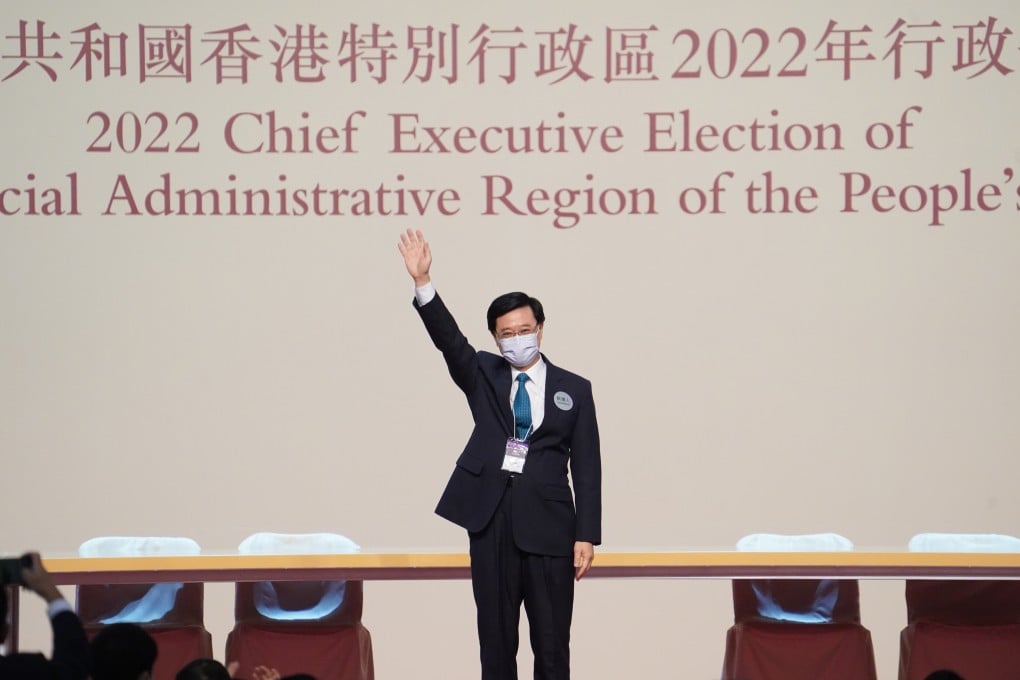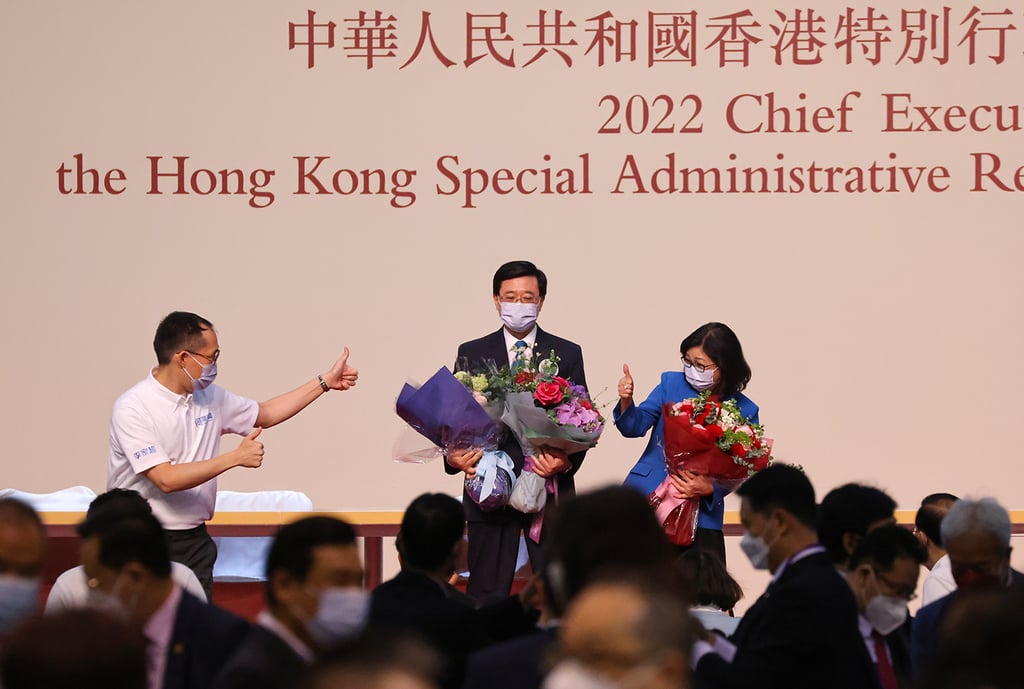John Lee vows to undertake ‘historic mission’ and start ‘new chapter’ for Hong Kong as he wins chief executive election uncontested
- Lee secures 99.2 per cent of votes cast by an Election Committee dominated by pro-establishment forces
- With only 54 days to go before he is sworn in, Lee says forming his cabinet will be a top priority

Lee, 64, vowed to unite a city still divided after the political and social turmoil of 2019, starting with building a “passionate” governing team to usher in a “new chapter” of stability and prosperity.
“With loyalty and perseverance, I shall undertake this historic mission and shoulder this responsibility to unite and lead the 7.4 million Hong Kong people to start a new chapter together,” he said, as chief executive-elect.
Lee secured 1,416, or 99.2 per cent, of 1,428 valid votes cast by an Election Committee dominated by pro-establishment forces, the highest tally in the six leadership races since the city’s return to Chinese rule in 1997, with eight voting against him and four casting blank ballots.

The former career policeman-turned-top bureaucrat is the oldest chief executive to be elected – all his predecessors were aged below 60 when they took office.
In his victory speech, he renewed his election manifesto pledges to tackle the city’s chronic housing problems, address governance inadequacies, protect national security and boost international competitiveness.